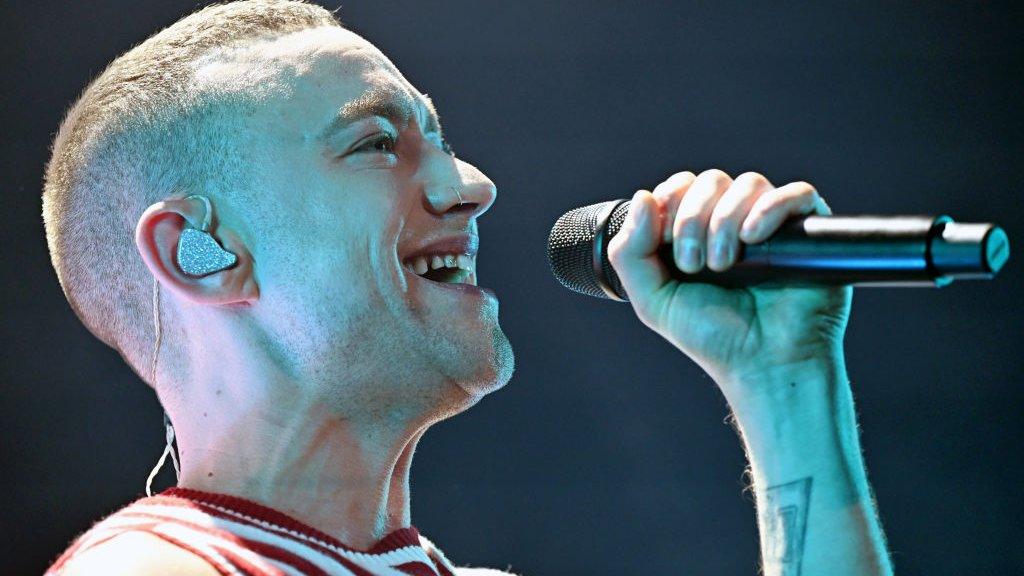Eurovision: What happened at the world's biggest song contest?
- Published
- comments
Eurovision recap: What happened at the world's biggest song contest?
The crystal microphone trophy is heading to Switzerland as Nemo won the 2024 Eurovision Song Contest.
Their operatic hip-hop anthem 'The Code' finished top of the leader board with 591 points, earning the highest score from the expert jury.
The 24-year-old becomes the first non-binary winner of the contest.
The Grand Final took place in Malmö, Sweden after the country won the right to host the competition last year.
A jury of music professionals from each country picks their favourite song from the 25 finalists. A song can receive a maximum of 12 points from each nation.
The public also votes for their favourite. These scores are ranked and then combined to form a final leader board.
You cannot vote for your own country.
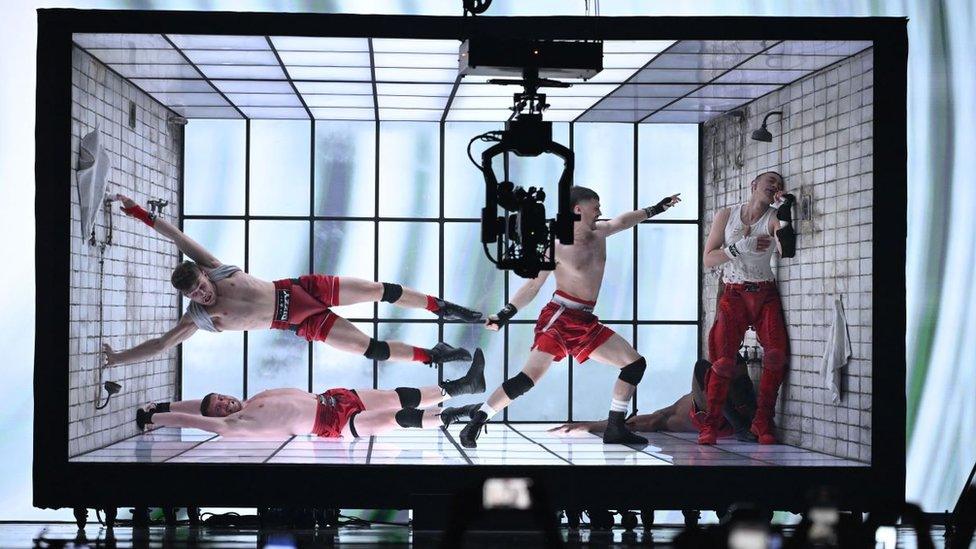
The UK's entry Dizzy by Olly Alexander featured clever camera trickery to make it look like the performers were inside a rotating room.
The UK's entry 'Dizzy', written and performed by Years and Years singer, Olly Alexander, finished in 18th.
The song received no points in the public vote, which makes up half of the overall score.
Eurovision: Protests over conflict in Gaza
This year the focus wasn't entirely on what happened on stage.
The build up to the event saw several political protests with more than 10,000 people march through Malmö in the week leading up to the Grand Final.
The protests were over Israel's participation in the competition and the Israeli government's actions during the current the war in Gaza.
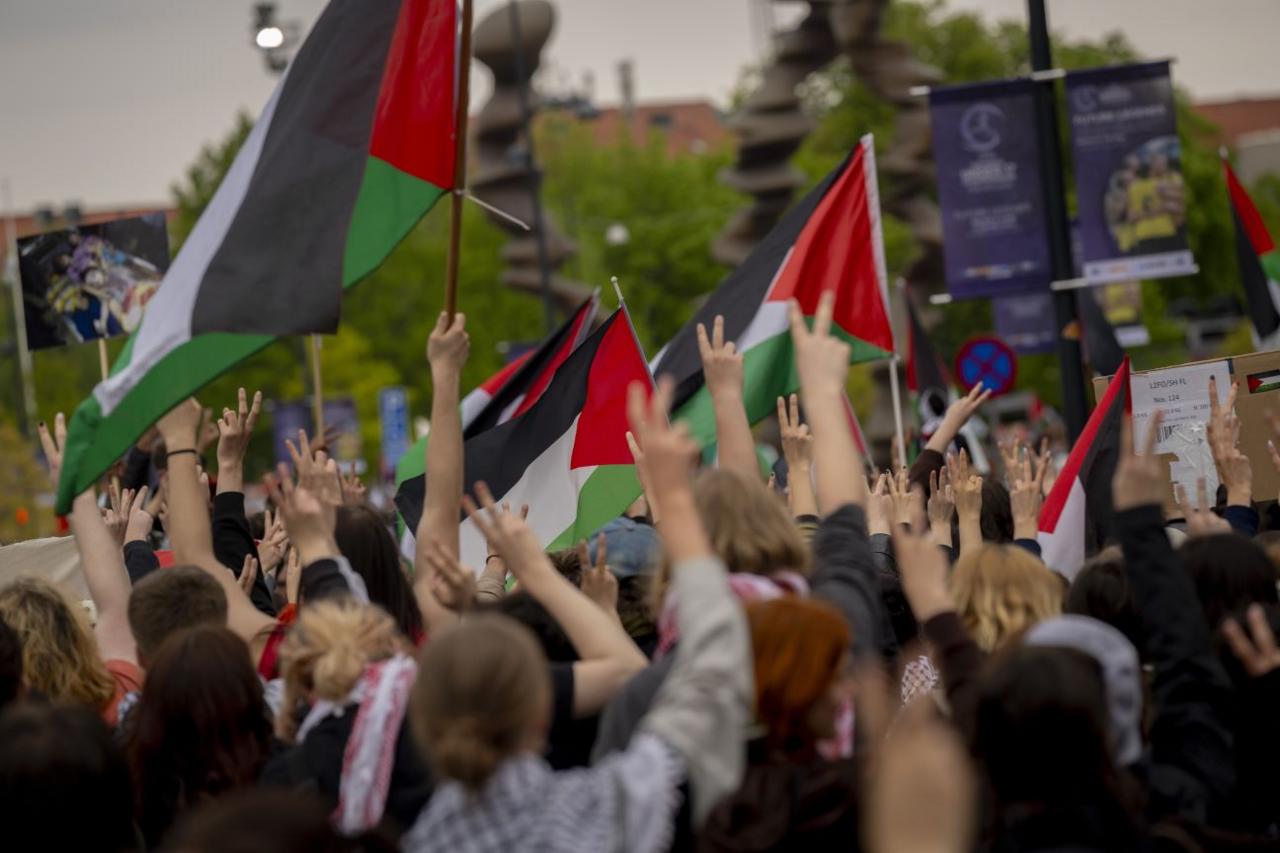
Thousands of protesters took to the streets of Malmö in the week leading up to the Grand Final
Israel's participant, Eden Golan and her song 'Hurricane' performed well in the public vote, with many countries, including UK, awarding them 12 points.
She received a mixture of boos and cheers whilst performing, and finished fifth overall.
1. Switzerland: Nemo - The Code
2. Croatia: Baby Lasagna - Rim Tim Tagi Dim
3. Ukraine: Alyona Alyona & Jerry Heil - Teresa and Maria
4. France: Slimane - Mon Amour
5. Israel: Eden Golan - Hurricane
Eurovision 2024: What were the standout performances?
Elsewhere, Croatia's Baby Lasagna finished second with his song about a country boy who sells his cow and moves to the big city, whilst Ireland's Bambie Thug appeared on stage in a circle of candles, pretended to summon a demon and then performed ballet with it.
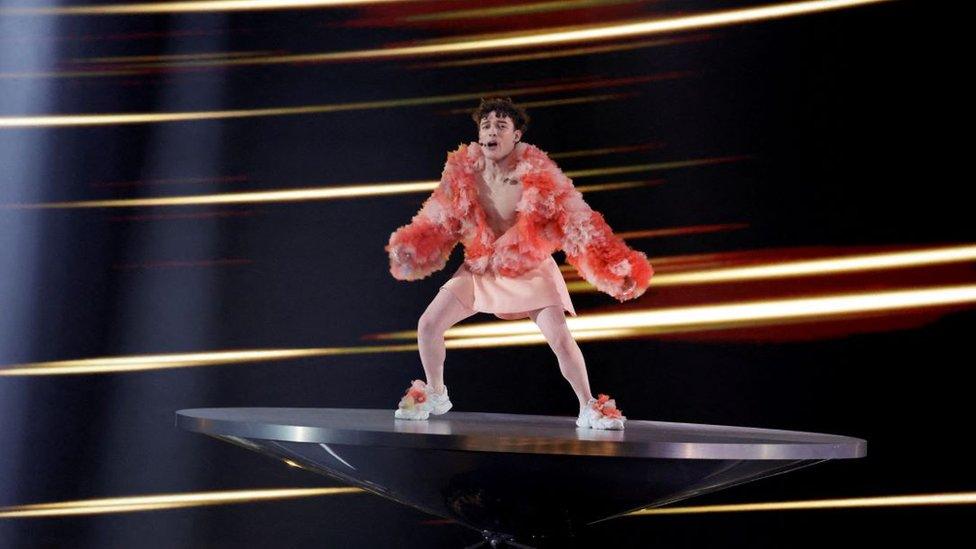
Nemo performed 'The Code' whilst standing on a large spinning disk
Once all the competing acts had performed, the 9,000-strong crowd were entertained by, (among others), famous Eurovision winner Conchita Wurst and last year's champion, Loreen.
Legendary Swedish pop group Abba also appeared, but in computer generated avatar form as their younger selves.
Switzerland wins Eurovision
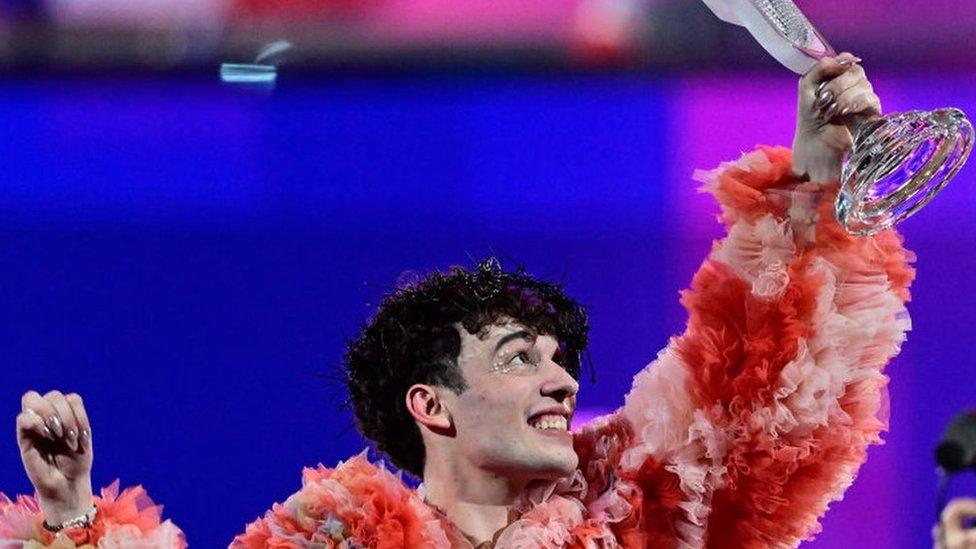
After their victory was announced, Switzerland's Nemo celebrated on stage and said: "I hope this contest can live up to its promise and continue to stand for peace and dignity for every person in this world."
The win comes 35 years after Switzerland's last victory and will see the competition return to the country where it all began nearly 70 years ago in 1956.
- Published15 May 2023
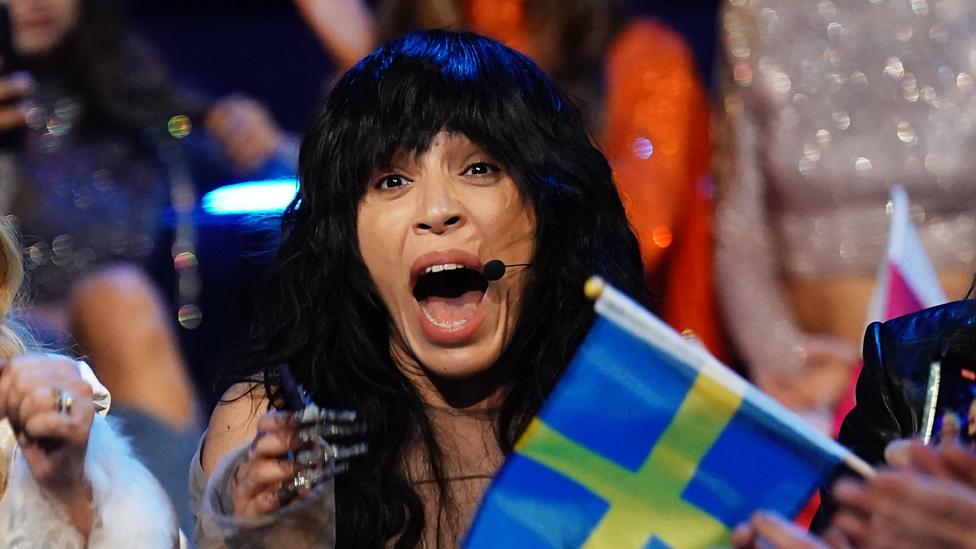
- Published4 April 2024
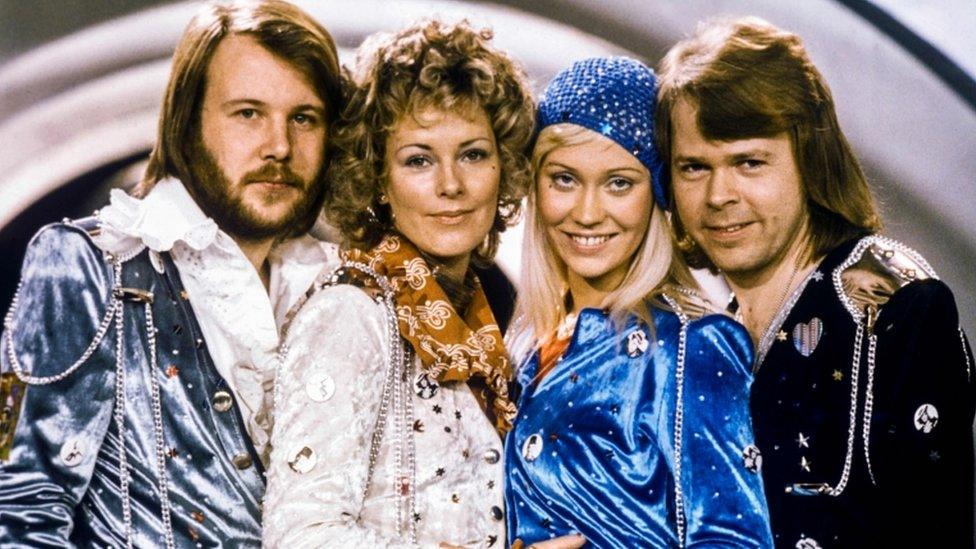
- Published1 May 2024
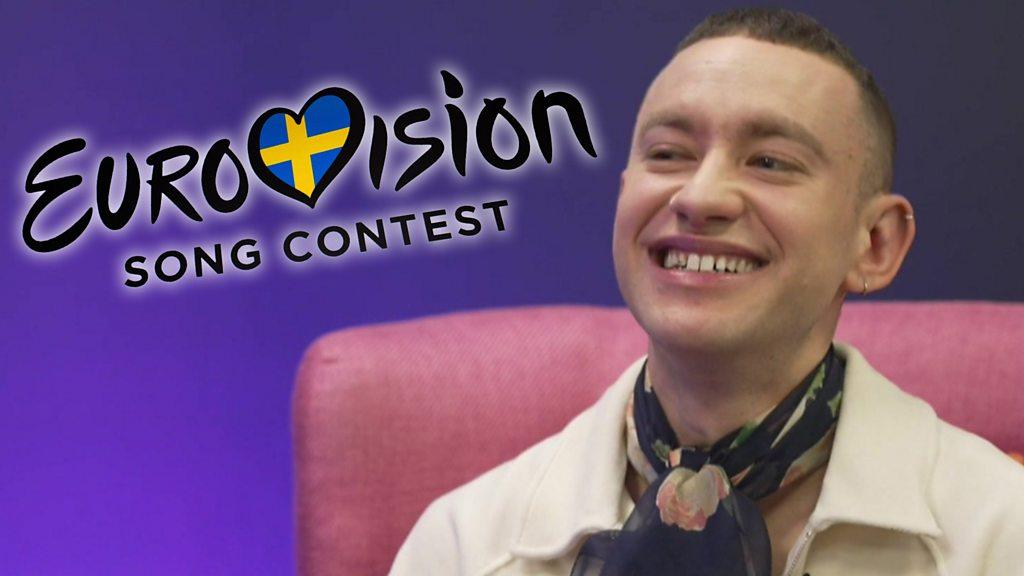
- Published10 May 2024
